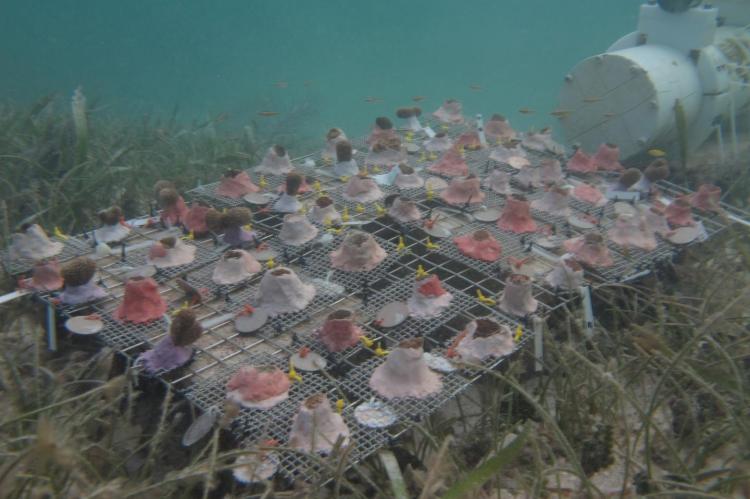Corals survive acidified ocean conditions, though skeletons are less dense
Research has found that some coral species have the ability to tolerate acidified ocean conditions.
A two-year experiment led by University of California Santa Cruz (UCSC) shows that some coral species may be able to survive levels of ocean acidification more severe than those expected later this century. However, the conditions made the density in their skeletons lower than usual.
The findings of the study was published in the Proceedings of the Royal Society B journal.
The research took place along the Caribbean coastline of Yucatan Peninsula in Mexico, where the water discharging from submarine springs has lower pH than the surrounding seawater, leading to reduced availability of the carbonate ions that corals need to build up their skeletons.
Three genetically identical species of coral fragments were transplanted to a site affected by the springs, and to another site that was not affected. After two years, it was found that the slow-growing species—massive starlet coral (Siderastrea sidereal) and mustard hill coral (Porites astreoides)—fared better than the fast-growing finger coral (Porites porites).
Coauthor Donald Potts, professor of ecology and evolutionary biology at UCSC, said, “The slow-growing, dome-shaped corals tend to be more tolerant of extreme conditions, and they are important in building up the permanent structure of the reef."
"The good news is the corals can survive and deposit calcium carbonate, but the density of their skeletons is reduced, which means the framework of the reef would be less robust and might be more susceptible to storm damage and bioerosion," said Adina Paytan, a research professor at UCSC's Institute of Marine Sciences and corresponding author of the paper.
Describing herself as cautiously optimistic, she added, "they have the potential to persist with ocean acidification, but it costs them energy to cope with it, so we have to do all we can to reduce other stressors, such as nutrient pollution and sedimentation."


